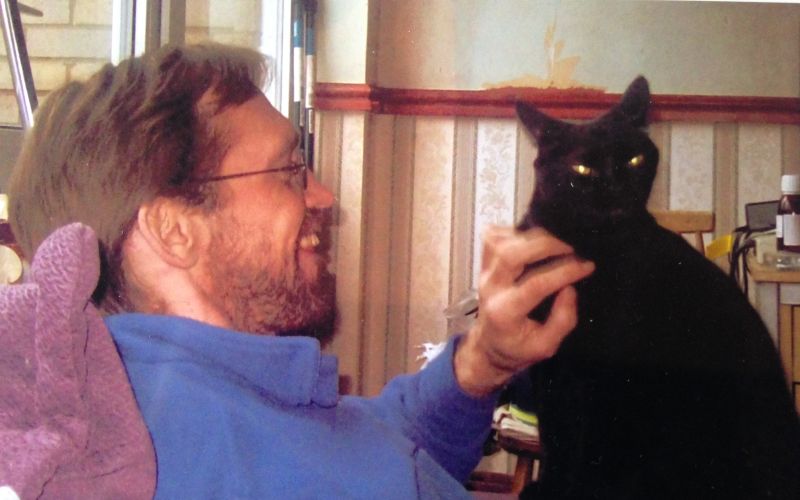
By John Pring
A disabled man who starved to death after his benefits were wrongly stopped is the latest in a long line of fatalities that can be linked to failings and deliberate policy decisions by the Department for Work and Pensions (DWP).
This series of deaths now stretches back more than 10 years, with the death of Errol Graham strikingly familiar to other tragedies that have been linked to the department’s refusal to address fatal flaws in its safeguarding and employment and support allowance (ESA) systems.
Disability News Service (DNS) has today revealed (see separate story) how Graham, from Nottingham, weighed just four-and-a-half stone when he was found dead by bailiffs who knocked down his front door to evict him. He had just a couple of out-of-date tins of fish left in his Nottingham flat.
He was found dead eight months after his benefits had been stopped.
But DWP civil servants had failed to seek further medical evidence from his GP, while they also failed to speak to him to check on his welfare after he missed a face-to-face benefits assessment.
Instead, his benefits were stopped after he failed to respond to two letters, a telephone call, a text message, and two “safeguarding” visits.
An inquest heard last June that this was standard DWP procedure, even though Graham had a long history of mental distress, had been sectioned, and had told DWP just three years earlier: “Cannot deal with social situations. Keep myself to myself. Do not engage with strangers. Have no social life. Feel anxiety and panic in new situations.”
DNS can reveal that the death of Errol Graham closely mirrors other tragedies caused by DWP’s repeated refusal to make significant improvements to its safeguarding policies and practices.
Assistant coroner Dr Elizabeth Didcock told the inquest into his death last June: “He needed the DWP to obtain more evidence at the time his ESA was stopped, to make a more informed decision about him, particularly following the failed safeguarding visits.”
And she added: “There must be guidance that ensures all evidence that can reasonably be gathered is put together about a client, before a benefit is ceased.”
These comments closely match those of two other coroners, in 2010 and 2014.
In March 2010, coroner Tom Osborne told DWP, following an inquest into the death of Stephen Carré (pictured), who had taken his own life after being found “fit for work”: “I feel the decision not to seek medical advice from the claimant’s own GP or psychiatrist if they are suffering a mental illness should be reviewed.”
Four years later, following an inquest into the death of Michael O’Sullivan, who also took his own life after being wrongly found fit for work, senior coroner Mary Hassell told DWP there was a risk of further deaths unless it took action to ensure that its decision-makers requested further medical evidence in such cases.
Other cases, like those of David Barr and Ms DE, both from Scotland, have also been linked to DWP’s failure to ensure that detailed medical evidence is obtained before finding someone with a history of mental distress fit for work.
But DWP has repeatedly refused to make the changes to policy and guidance that are needed to ensure the system is safe, particularly for people with mental distress, autistic people and people with learning difficulties.
There are other key similarities between DWP’s failure to protect Errol Graham from harm, and the deaths of other claimants.
Dr Didcock concluded in her narrative verdict last June that Graham had starved to death after his benefits were removed, just like Mark Wood.
Wood, from Oxfordshire, died after being found ineligible for ESA, even though he had never been able to cope with the demands of a job, and his GP had said he was completely incapable of working.
The decision to find him fit for work after a work capability assessment (WCA) caused him extreme anxiety and distress and exaggerated his eating disorder.
DWP’s failings in the Graham case are also disturbingly similar to those that led to the death of Paul Donnachie, from Glasgow.
His body was discovered by bailiffs who had been sent to knock his front door down in January 2016, but he is believed to have taken his own life in November 2015 after failing to attend a WCA and losing his ESA.
DWP failed to contact Donnachie’s GP to ask for detailed information about his mental health, but it also failed to ensure someone spoke to him to check on his welfare before removing his benefits, just as in the case of Errol Graham.